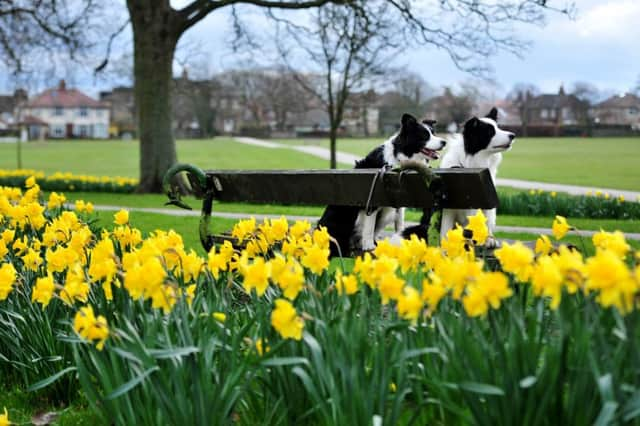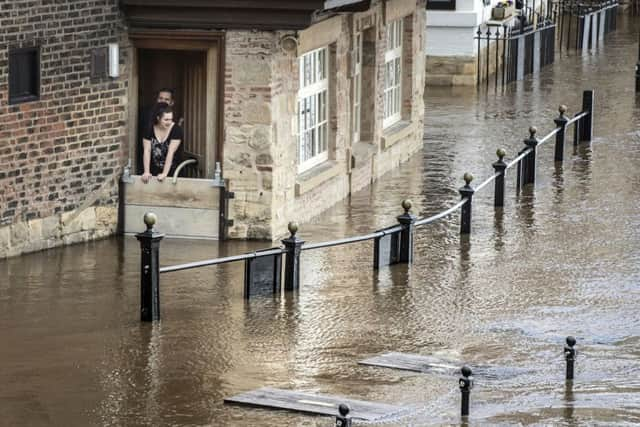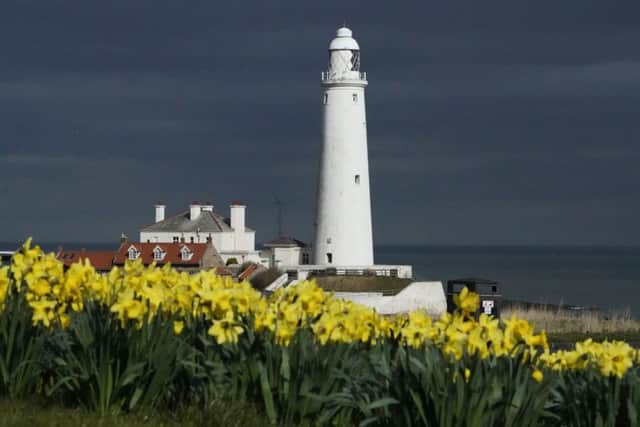David Behrens: After the deluge, thoughts of spring spread a little happiness


Unfortunately, last weekend was a reminder, if one were needed, that it takes only a day of persistent rain for the coast to move closer to us.
Parts of York, Otley and Burnsall were underwater as the Ouse and Wharfe breached their banks, and at Malham, a farmer had to usher his flock to safety as water began to fill his lambing sheds.
Advertisement
Hide AdAdvertisement
Hide AdIt was not as bad as the winter of three years ago, when part of Tadcaster Bridge collapsed and split the town in two, but any flood is a tragedy for those involved, and this one seemed to have taken many by surprise.


The fact that the weather turned on a sixpence in the following 24 hours served only to underline the fragility of the ecosystem that supports our rural communities especially.
It will be a different picture this weekend, as we drag our lawnmowers from our sheds and begin to scrape away the detritus of last autumn from their undersides in an attempt to make them ready for the growing season.
The nature of this, we were reminded from several sources this week, is ever-changing, with deer now placed on the list of persistent garden pests in even the most urban parts.
Advertisement
Hide AdAdvertisement
Hide AdThe prospect of seeing Bambi outside the French windows, nibbling away at the flower beds, might delight the grandchildren but the increasing populations of muntjac and roe, and even the larger fallow and red deer in our towns and cities, are disruptive to plants and trees and dangerous to passing cars.


The advice from the Royal Horticultural Society is to grow fewer tulips and roses, and more daffodils, which are mildly toxic and disliked by unwanted visitors. It’s the horticultural equivalent of serving roast dinners to your vegetarian relatives, in the hope that they will stop turning up.
The infestation of the weed known as Himalayan balsam has become another scourge of gardeners and conservationists alike, as it spreads like wildfire along river banks, killing off the native plants and accelerating erosion, which in turn makes more breaches likely. Honestly, these foreign plants – coming over here and taking our bluebells...
We have the gardeners of Victorian England to blame for this. They were apparently seduced by its attractive pink flowers and imported it by the boatload to decorate the gardens of the stately homes whose owners had commissioned them. But it turned out to be more contagious than measles. Its sale is now prohibited by law, which puts it on a par with cannabis – except that you won’t find dealers pushing Himalayan balsam outside dodgy pubs on a Friday night.
Advertisement
Hide AdAdvertisement
Hide AdThe extent of its rampage became clear this week when the National Plant Monitoring Scheme, a sort of annual woodland audit, revealed that even the upper river courses in the Yorkshire Dales are now infected. The spread is fuelled by nitrogen pollution from traffic emissions, which falls like drops of poison on the countryside. According to the conservation charity, Plantlife, virtually none of England’s woodland is untouched.
Back on the coast, where Mrs B spent the first day of spring house hunting, the changing environment has brought its own issues. One detached house, whose details she sent me, might have been ideal had it not been so close to Spurn Point, where the defences against erosion have been abandoned and nature is being left to take its course. The estate agent did not say how long it had been detached.
Taking all of this into account, one wonders how a United Nations poll managed to conclude this week that Britain is one of the happiest countries in the world and getting happier by the year. We now rank 15th in its league of contented nations, above Ireland, Germany, Belgium and the US.
I don’t know what to make of this, except that polls are not based on what people actually think but on what they tell the pollsters, and are therefore usually inaccurate.
Advertisement
Hide AdAdvertisement
Hide AdStill, the onset of spring and the prospect of a pleasant weekend, especially after the last one, is indeed a cause for happiness, and I swear I’ve already caught a whiff of the first barbecue of the season. I wonder if they were cooking venison.